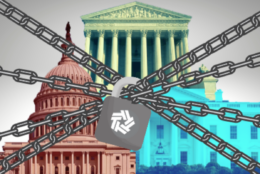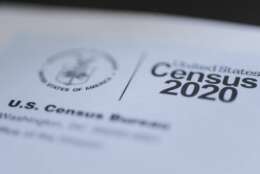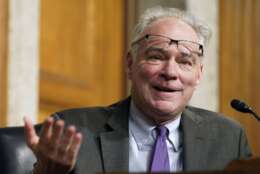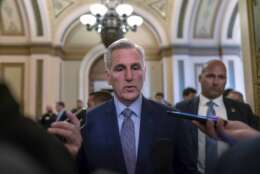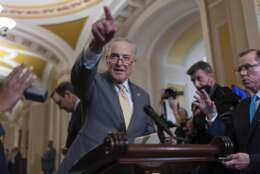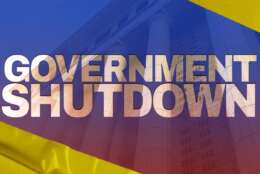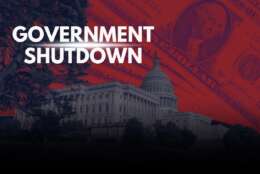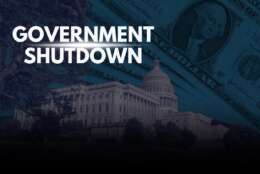Management
-
Many respondents to Federal News Network’s poll said they’re also worried about the long-term negative impacts that a government shutdown poses.
September 28, 2023 -
How often have you heard it said: The census count determines how much federal money a state, county or city will get. Data analysis by the Project on Government Oversight (POGO) shows that supposition is not quite as simple as it sounds. For more, Federal Drive Host Tom Temin spoke with POGO senior policy analyst Sean Moulton.
September 28, 2023 -
It didn't last very long, but scientists at the National Nuclear Security Administration (NNSA) did run a test that resulted in nuclear fusion late last year. Fusion means the reaction put out more energy than the input to produce it.
September 28, 2023 -
In today's Federal Newscast: Homeland Security Committee Republicans want to block funding for a new panel of intelligence advisers that includes Clapper and Brennan. OMB updates FAQs that help agencies prepare for government shutdowns. And will a change in the fiscal calendar help eliminated future government-shutdown threats? Sen. Kaine (D-Va.) thinks so.
September 28, 2023 -
Service members at all 10 installations the Government Accountability Office visited said their living conditions were poor enough to take a toll on their mental health. Auditors found widespread problems like mold, nonexistent air conditioning, and concerns about crime because of broken locks, windows and security cameras.
September 28, 2023 -
The Senate is marching ahead with a bipartisan approach to prevent a government shutdown. But on the House side, Speaker Kevin McCarthy is back to square one. The Republican leader laid out his strategy Wednesday behind closed doors. He asked hard-right Republicans to do what they've said they'd never do, and pass their own temporary measure to keep the government open. A House test vote is set for Friday, one day before the shutdown deadline. Their plan would cut spending by 8% and toughen border security. The Senate bill would fund the government, adding $6 billion for Ukraine aid and $6 billion for U.S. disaster relief.
September 27, 2023 -
The Biden administration is facing bipartisan calls from Congress to make better use of federal office space, and get rid of buildings that agencies no longer need.
September 27, 2023 -
The back and forth continues on whether there will be some sort of government shutdown by the end of the week. Members of Congress continue to try to find some resolution that either everyone can live with or few enough people can't.
September 27, 2023 -
In today's Federal Newscast: The leaders in the U.S. Senate have an agreement. Now what? Since 2020, IRS chatbots have assisted over 13 million American taxpayers. And the 2023 Combined Federal Campaign is ready to take your donations.
September 27, 2023 -
Federal employees are just days away from a government shutdown if Congress fails to pass appropriations bills to fund the government for fiscal 2024 or a continuing resolution.
September 26, 2023 -
A shutdown would potentially leave CISA with a skeleton crew to respond to cyber attacks on the networks of federal agencies and critical infrastructure.
September 26, 2023 -
Here’s how many feds would stay on the job – both with and without pay – during an upcoming shutdown
65% of the overall civilian workforce would keep working though a shutdown, but hundreds of thousands would receive no pay, according to agency shutdown plans.
September 26, 2023 -
The 16th version of the Federal IT Acquisition Reform Act (FITARA) scorecard from Congressman Gerry Connolly (D-Va.) revealed two new pilot categories measuring the move to cloud and CIO authorities.
September 26, 2023 -
There's never a convenient time for a full or even a partial government shutdown, but we've reached the beginning of the end of another fiscal year with the likelihood of a shutdown rising. So how can contractors make sure they're ready for it and minimize the damage?
September 26, 2023 -
In today's Federal Newscast: USPS wanted to break even this fiscal year. Instead, it has lost nearly $7 billion. The CIO-SP4 governmentwide acquisition contract might finally be in the home stretch. And OMB tells agencies to update their plans for a government shutdown.
September 26, 2023

